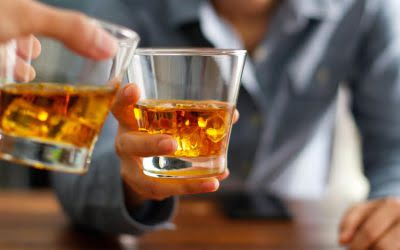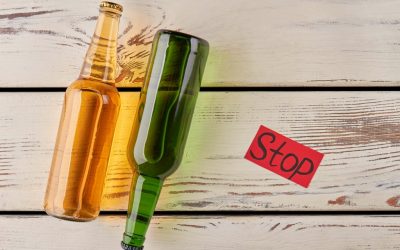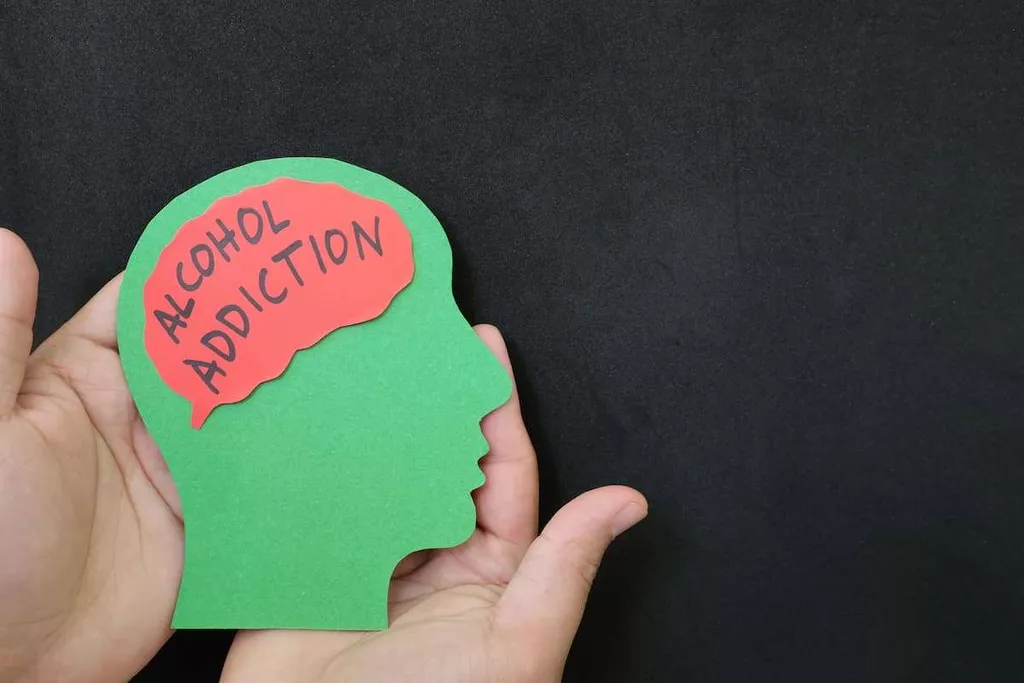Contents
It’s the most effective way to overcome alcohol addiction because it helps to relieve withdrawal symptoms, reduces cravings and helps people to break their dependence on alcohol. Heroin and opioid use disorder treatment outcome is a very important thing to look at. Heroin and opiate use disorder treatment outcome is determined by the severity of the addiction, dose and frequency signs of a functioning alcoholic of use, co-occurring disorders such as depression and anxiety, and other factors. Heroin and opioid use disorder treatment outcomes can be extremely positive. It’s hard to make a blanket statement about whether drug rehab works, because each individual has their own personal journey and history. However, there are some general facts that we do know about drug rehab.
What are the five stages in recovery?
The five stages of addiction recovery are precontemplation, contemplation, preparation, action and maintenance.
A lot of people in the addiction recovery community think that addiction rehab success rates are high. If you’re reading this, you probably don’t believe this to be true, and you’re right to do so. The good news is that drug and alcohol addiction can be treated. Many people think that the only way to get sober is to go to prison, but there are many treatment centers out there with proven methods and techniques for helping you recover from addiction. Treatments, it’s first important to understand what type of treatment plan is involved in a rehab program.
Finding the Right Rehab Program for You
This level of care helps clients learn to live sober while providing a safety net and much-needed structure. Our Outpatient Program for addiction in Massachusetts allows clients who have completed previous addiction treatment programs in MA to continue their recovery in a supervised and safe environment. The National Institute on Drug Abuse found that 40 to 60 % of people who go through addiction treatment will relapse. However, when compared to relapse rates of similar diseases, that number is low.

When they incorporate these forms of exercise into the program they do. Learning new habits for a healthy lifestyle ensures the success of long-term recovery. Once you finish rehab, the most important thing is to make sure alcohol rehab and recovery information that you have a plan in place that will help you succeed after your treatment. If you don’t have a plan, then it’s likely that you’ll relapse. When you go to rehab, you don’t just want to come out and be fine again.
Legacy Treatments Centers Contribute Positively To Drug Rehab Success Statistics
In addition to mitigating the physical danger, 30-day programs are like bootcamp for addiction. They can break through some of the toughest cases, so healing can begin. At the end of 30-day program, you can expect to be clean and have a clearly mapped out plan for long-term recovery. If you’re wondering does 30-day rehab work, you might not understand the whole addition-recovery cycle. There are plenty of those programs, and they wouldn’t exist if they didn’t work. True success, however, depends on your definition of success.
Is it better to punish or to rehabilitate?
Lastly, rehabilitation is more effective than punishment as it directly tackles the root cause of criminality, which are often symptoms of societal issues. Punishments are, conversely, limited to being a form of discipline in response to delinquency.
Neuroscience is gaining momentum in treating this disease, and this will progress in the next decade and beyond. Research on outcomes of AA is not permitted under the rules of the fellowship, so its success rate is unknown. The effectiveness of the 12 step approach or any other therapy method delivered in groups has very limited research. One study comparing the outcomes of a therapy delivered to individuals and to groups found the reduction in drinking and drug use was about the same, but group therapy was cheaper to run. In the therapeutic community drug and alcohol treatment and personal growth comes from adhering to the group rules and participating in daily activities that support the community.
Effective Drug Rehab Doesn’t Necessary Mean Sobriety
About 68% of people who go through medically supervised detoxification for drugs and alcohol have a successful rehabilitation experience. This is why it’s important to really consider the environment and make sure that the rehab program you’re considering can provide a comprehensive long-term support structure. A good rehab program will be able to provide you with the tools you need to make real life changes and stay sober instead of just focusing on getting you clean and back out the door. At 12 Keys you will receive all the individualized care and on-going support services you need for a successful long-term recovery.

Everyone who goes to AA meetings or seeks treatment but doesn’t end up sober. Even a long-term stay in a rehab is no guarantee of success. The only guarantee is that if you don’t try rehab, you will continue to abuse drugs. Some rehabs take a different approach to the 12 step model. They rely on individualised treatment plans that help the patient work through their substance abuse problems, as caused by mental distress, trauma or dysfunctional relationships.
Support groups can also improve long-term results of recovery from addiction. There is something very special about the bond created between people with similar experiences. For some reason, just knowing that you are not the only one who has ever dealt with addiction makes it easier to cope. Meeting some of those other people and hearing their stories affirms your decision to get clean and stay healthy.
Detoxification Programs
Reports of treatment effectiveness vary according to treatment types, types of drugs and types of people. There are about 800 funded beds in residential rehabilitation centres in New South Wales and 200 in Victoria, with waiting times varying from three to six months. One study from England and Wales found completion rates varied widely, from 3% to 92%; the average was 48%. Julaine Allan has received funding from the NHMRC, ARC and RIRDC for research related to drug and alcohol use. Julaine works for Lyndon, a not for profit drug and alcohol treatment, research and training organisation. The key to addiction treatment is that anyone who wants treatment gets effective treatment.
Initial autopsy results were inconclusive, and toxicology tests will likely take at least two weeks. But the Grammy Award–winner had a recent history replete with physical health problems, psychological difficulties, and drug and alcohol abuse. In 2007 Winehouse was admitted to the hospital after overdosing on a combination of alcohol, cocaine, ecstasy, heroin and ketamine. She had at least a few stints at in-patient rehabilitation clinics but did not entirely stay clean afterward. Addiction rehabilitation envisions an intensive period of inpatient or residential treatment. The prototype was established in 1949 based on the 12 steps of Alcoholics Anonymous and later expanded to address other addictions.
- In many ways, drug rehabilitation works for people who are committed to working through the process of recovery.
- Outpatient therapy can be very effective for many people, but if you need something more intensive than inpatient therapy could be better.
- Oftentimes, drug addicts are completely unaware of the devastation they are causing in the lives of those around them, especially within their own families.
- It’s a 360-degree approach that heals clients today and helps them stay happy and healthy tomorrow.
The media tends to focus on the few who fail rehab because it makes more exciting headlines. And for some, it isn’t the magic pill they were looking for. But rehab centers are full of success stories and people currently working toward a lifetime of sobriety. For every hard-fought recovery success story such as this one, there is a least one tragedy. You probably know someone just like Sharon whose path took a much different direction.
People who successfully complete outpatient MAT for opioid dependence stay at a drug rehab for an average of 113 days. Rehab success rates for those who complete drug and alcohol detoxification are a combined 68 percent. In many ways, drug rehabilitation works for people powdered alcohol who are committed to working through the process of recovery. If that’s you and you’re looking for support along the way, contact us today. Dialectical behavioral therapy is effective in reducing self-injurious behavior, the length of treatment, and suicide attempts.
Do criminals feel regret?
Whatever regret they do experience relates to unpleasant consequences that they themselves experience. They regret being apprehended but do not regret what they did. Some criminals demonstrate that they occasionally experience remorse. There are flickers of conscience.
It’s great to get clean and feel as if you’re starting your life fresh, but no one likes to be without friends. Recovered addicts need to find clean sober friends who support their efforts to remain healthy. The on-going support of people close to you will help your rehab program work for long-term success.
Meth Rehab Success Rates
Understanding that and recognizing relapse as a step to sobriety, not a sign of failure, is vital in keeping your loved one on the right track. Here at Good Landing, we will help addicts gain the skills they need to combat addiction. Drug Rehab does work, as long as the addict is willing to admit they have a problem. Drug rehab can be seen as effective if the addict stops using drugs as frequently or in large quantities.

The relapse rates are the percentage of people who will eventually go back to drinking alcohol after they’ve quit. It’s one of the most important statistics you need to know when you’re trying to get sober. One is the initial relapse rate, which is when you first go back to your old habits and have a lapse in recovery. The best way to avoid the initial relapse is by being aware of your relapse triggers. While addiction may be known clinically as a substance use disorder, it is actually a chronic disease. This means it is similar to other chronic diseases, like diabetes or hypertension where there are only treatments, not cures.
